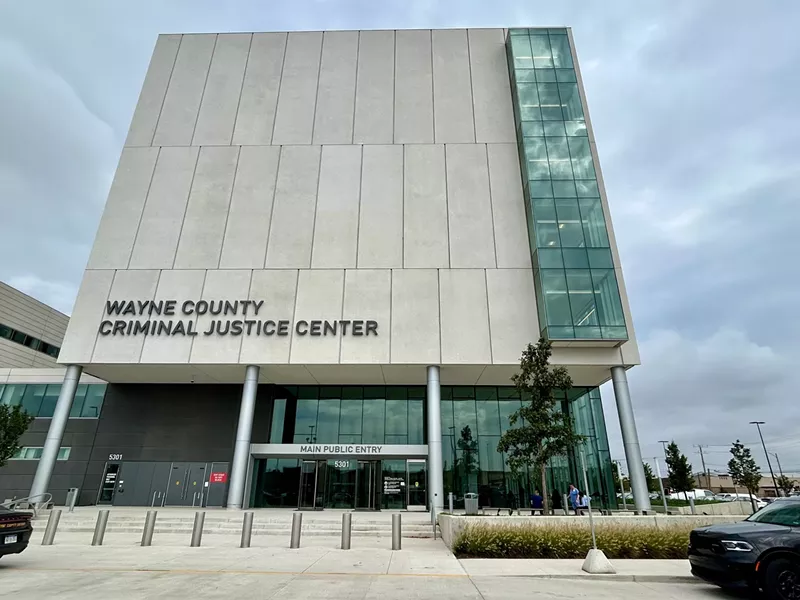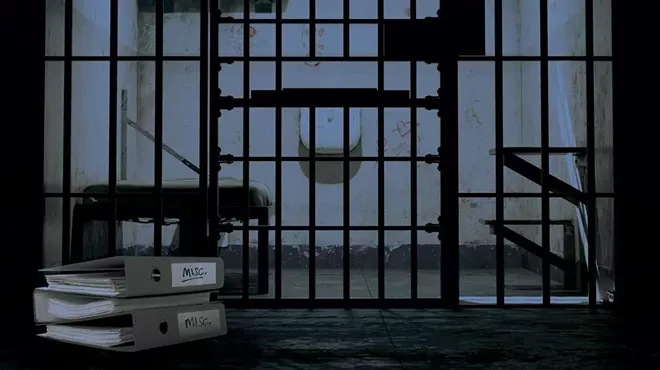Michigan AG not investigating illegal destruction of Wayne County prosecutor files
The unlawful destruction of records has made it exceedingly difficult for wrongfully convicted inmates to prove their innocence

Audio By Carbonatix
[
{
"name": "GPT - Leaderboard - Inline - Content",
"component": "35519556",
"insertPoint": "5th",
"startingPoint": "3",
"requiredCountToDisplay": "3",
"maxInsertions": 100,
"adList": [
{
"adPreset": "LeaderboardInline"
}
]
}
]

Thousands of files belonging to the Wayne County Prosecutor’s Office were illegally destroyed, but a week after Metro Times reported on the unlawful purge, the Michigan Attorney General’s Office says it is not investigating the case.
The destruction of prosecutor files has made it exceedingly difficult for wrongfully convicted inmates to demonstrate their innocence.
Between 2001 and 2004, while Detroit Mayor Mike Duggan was prosecutor, most if not all misdemeanor and felony records from 1995 and earlier were removed from an off-site warehouse and destroyed, according to Wayne County Prosecutor Kym Worthy. During that time, Attorney General Dana Nessel worked in the prosecutor's office.
Duggan adamantly denies he was involved.
In Michigan, prosecutors are required to retain the files of defendants serving life sentences for at least 50 years or until the inmate dies. Violating the law carries a maximum penalty of two years in prison.
It’s not entirely clear why Nessel’s office isn’t investigating, but a spokesman says no complaints have been filed.
“Our department does not have an active investigation into the matter,” Danny Wimmer, spokesperson for Nessel, told Metro Times in a statement Tuesday. “I am unaware of any criminal complaint or request to investigate being filed with or referred to our office.”
Wimmer has not yet responded to Metro Times’s follow-up questions.
Any Michigan resident can file a complaint about the destruction of records by filling out this form on the Michigan Attorney General’s website.
Nessel’s office investigated Duggan’s administration in the past but declined to file charges. In October 2019, the Detroit Office of the Inspector General (OIG) said top officials in Duggan’s administration ordered the deletion of emails related to the nonprofit Make Your Date, which was run by the mayor’s now-wife. But Nessel declined to file charges in April 2021, saying the “facts and evidence in this case simply did not substantiate criminal activity.”
More than two dozen prisoners interviewed by Metro Times say they are innocent, but the destruction of the prosecutor’s files has severely hindered their ability to get a new trial.
The file purge involved records from a deeply problematic period in Detroit’s Homicide Division when rampant misconduct, coerced confessions, and constitutional violations by police, particularly homicide detectives, were so widespread that the U.S. Department of Justice intervened, pressing for reforms to avoid a costly lawsuit in the early 2000s. This era of misconduct led to a significant number of wrongful convictions and false confessions, evidenced by a surge in exonerations and court settlements.
Legal experts say many innocent people remain incarcerated, but the destruction of the prosecutor’s files has compromised many of their cases, leaving some prisoners without a clear path to proving their innocence.
Eugene McKinney, a 54-year-old Detroiter who has been in prison since he was convicted of arson and first-degree murder in 1997, says he has compelling evidence to prove he’s innocent. But without the prosecutor’s files, he says, he has little recourse.
Someone needs to be held accountable for the file purge, McKinney says.
“They need to be prosecuted because they are withholding some important evidence that could exonerate me,” McKinney says from Gus Harrison Correctional Facility in Adrian.








